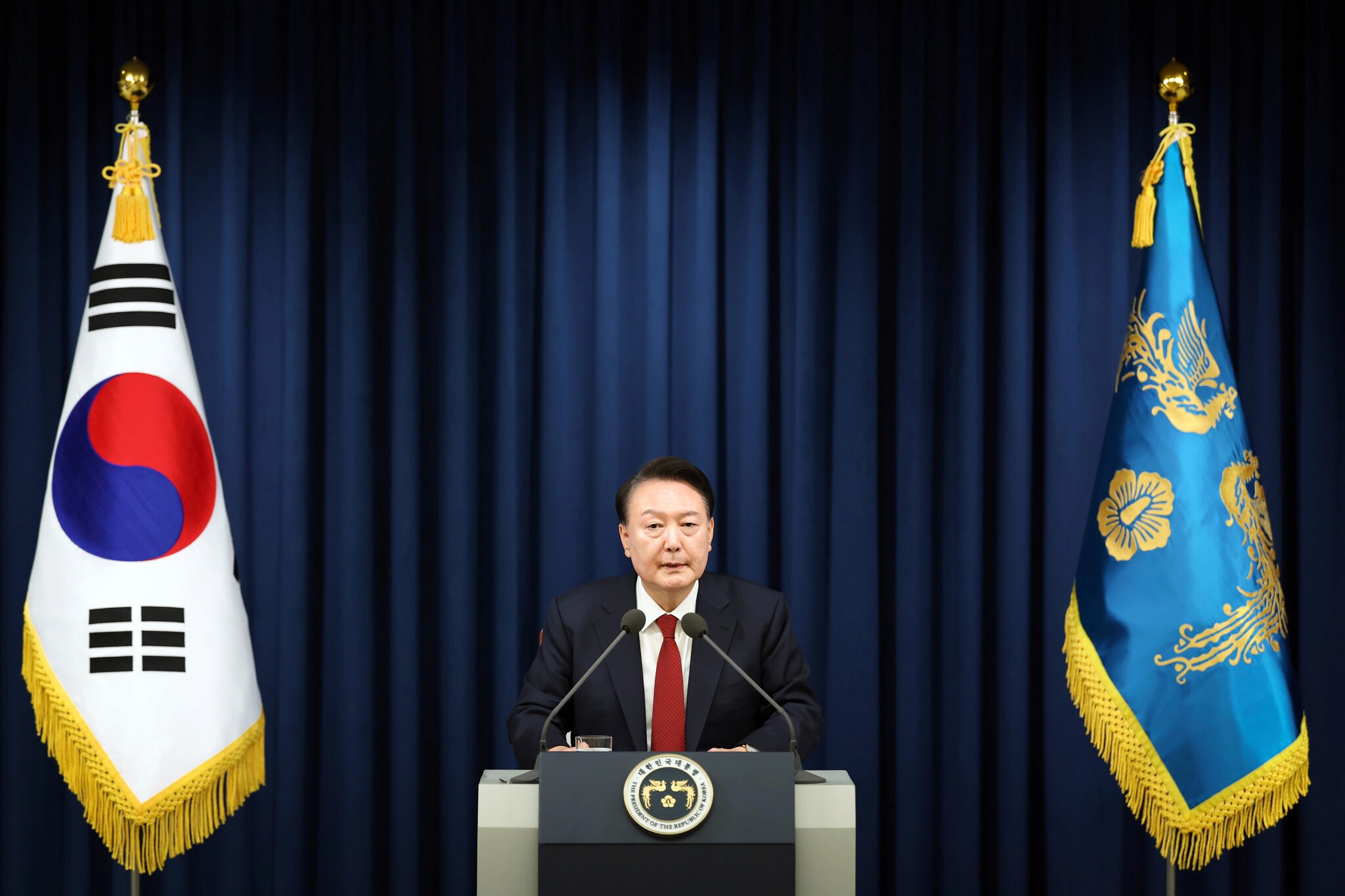Published Dec 9, 2024
• 5 minute read
AI Manipulation and the Erosion of Trust: Lessons from South Korea’s Martial Law Crisis
Yoon Suk Yeol, South Korean President
South Korea’s recent political crisis has brought the risks of AI-manipulated media into sharp focus. On December 5, President Yoon Suk Yeol stunned the nation by declaring martial law, citing vague threats from North Korean sympathizers. The move triggered political chaos, leading to mass protests and swift parliamentary action to overturn the decree within hours. Notably, opposition leader Lee Jae-myung initially questioned the announcement’s authenticity, suspecting it to be AI-generated.
This skepticism underscores a critical issue in today’s digital landscape: the growing difficulty in distinguishing genuine statements from AI-manipulated content. While Yoon’s martial law declaration was ultimately confirmed as authentic, the fact that seasoned political leaders and citizens alike doubted its veracity illustrates the eroding trust in official communications. As AI tools become increasingly sophisticated, world leaders’ statements—especially in politically sensitive contexts—will face heightened scrutiny.
Why Trust Is Waning
South Korea’s experience exemplifies a global challenge. AI tools, like generative video models and deepfake technology, can seamlessly create or alter videos of public figures. The speed and precision of these technologies mean that even live broadcasts or urgent declarations are no longer immune from suspicion. Public confidence in official communications now hinges not just on content but on the perceived integrity of the medium delivering it.
In the South Korean case, the context made the situation ripe for doubt. Martial law declarations are rare in modern democracies, and the suddenness of Yoon’s announcement, combined with the charged political climate, amplified the potential for misinformation. The opposition leader’s immediate doubts were not just a political maneuver but a reflection of how deeply AI skepticism has permeated public consciousness.
Lessons for the Global Stage
South Korea’s quick response—overturning the decree in six hours and addressing public concerns—demonstrates the resilience of its democratic systems. Yet the broader implications of the incident go beyond domestic politics. For democracies worldwide, this episode serves as a wake-up call to strengthen mechanisms for verifying the authenticity of official statements, especially during crises.
Efforts to combat AI-manipulated content in South Korea have been robust. The government recently criminalized the creation and distribution of sexually explicit deepfakes and enacted stricter penalties for misuse. However, these measures must now extend to safeguarding political communications. Verification tools, independent media watchdogs, and public education campaigns will be critical in ensuring the integrity of information.
A Warning for Future Crises
The martial law incident underscores a troubling reality: in a world where AI manipulation is increasingly sophisticated, trust in leadership and institutions is at stake. As geopolitical tensions rise, adversaries may exploit AI to sow confusion or undermine democratic processes. Nations must prioritize investments in detection technologies, international collaborations, and public awareness to mitigate these threats.
South Korea’s experience is not just a cautionary tale but a call to action. As the tools for generating synthetic media evolve, so too must the safeguards we implement to preserve trust in critical moments.
Want to Learn How We Can Protect Your Business?
Receive detailed insights on our deepfake detection technology straight to your inbox.
By submitting this form, I confirm that I have read and understood the
Share this article
Next report

